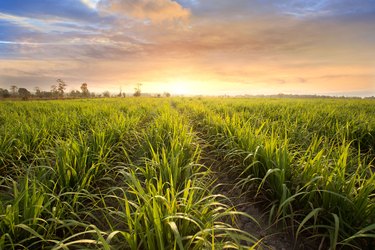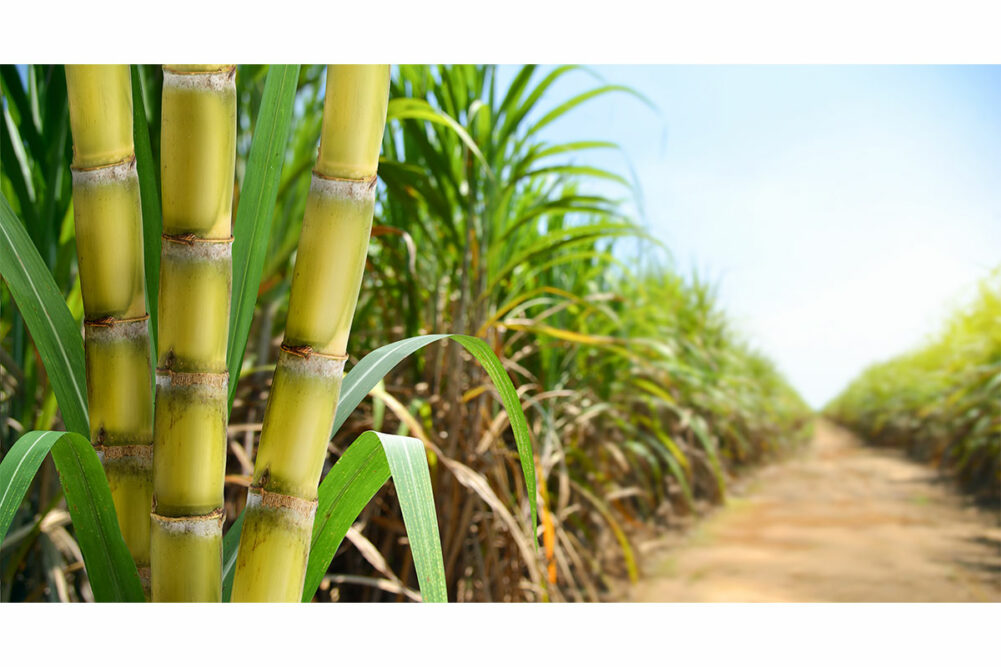Checking Out Sugarcane Products: Versatile Profits and utilizes
The expedition of sugarcane products reveals an impressive variety of applications that expand well beyond the familiar realm of sugar. This versatile crop functions as a foundation for a variety of food, commercial products, and even lasting energy options. Its by-products offer substantial ecological benefits and wellness benefits that merit focus. As we check out the multifaceted contributions of sugarcane, one might wonder just how these varied uses can improve industries and lifestyles in a quickly progressing globe.
Summary of Sugarcane
Although sugarcane is frequently associated primarily with sugar manufacturing, it is a versatile plant with an abundant history and many applications. Grown in subtropical and exotic regions, sugarcane flourishes in cozy environments and well-drained soils, adding considerably to several economic climates worldwide. This perennial yard, belonging to the genus Saccharum, can expand to heights of approximately 4 meters, showcasing its robust nature.
Past its primary function in sugar removal, sugarcane serves as a crucial resource for various spin-offs. The coarse residue, recognized as bagasse, is utilized for producing bioenergy and as a raw material for manufacturing paper and eco-friendly products. Additionally, molasses, a byproduct of sugar refining, is rich in nutrients and typically utilized in animal feed and fermentation procedures.
Sugarcane likewise plays a significant duty in standard medicines and cultural methods in several areas, highlighting its importance past commercial usage (sugarcane product). Furthermore, with the boosting emphasis on lasting farming methods, sugarcane is being explored for its capacity in biofuels and carbon capture, placing it as an essential gamer in the transition in the direction of renewable resource sources. Thus, the versatility of sugarcane expands far past the confines of sugar production
Sugarcane in Food Products


Beyond sweeteners, sugarcane is the resource of energy-rich items such as jaggery and panela, which are standard raw sugars utilized in several cultures. These items not only sweeten foods however also impart nutritional benefits and distinct tastes.
Sugarcane juice, a rejuvenating drink appreciated in several exotic regions, showcases the plant's convenience. It is frequently consumed fresh or fermented into alcohols like rum.
Additionally, sugarcane fibers, referred to as bagasse, are sometimes utilized to produce food product packaging products, highlighting the ecological benefits of sugarcane handling. Generally, sugarcane's payment to food products is multifaceted, boosting flavors, supplying dietary worth, and playing a significant duty in culinary traditions around the globe.
Industrial Applications of Sugarcane
In different markets, the versatility of sugarcane expands far beyond its cooking applications. Sugarcane acts as an important basic material in the manufacturing of biofuels, specifically ethanol, which is progressively utilized as an eco-friendly energy source. This biofuel is acquired with Recommended Reading fermentation and purification procedures, supplying a lasting choice to nonrenewable fuel sources and contributing to a decrease Homepage in greenhouse gas discharges.

Additionally, the sugarcane sector has found applications in drugs, where its parts are used in the formula of different medicinal items. The all-natural substances removed from sugarcane show antimicrobial and antioxidant residential properties, improving the efficiency of certain medicines.
Lastly, sugarcane is indispensable to the production of an array of chemicals, including glycerol and natural acids, which are important for various commercial procedures. These applications highlight sugarcane's substantial function in advertising industrial sustainability and technology.
Environmental Benefits of Sugarcane
The multifaceted applications of sugarcane not just enhance commercial procedures yet also contribute significantly to environmental sustainability. As a renewable energy, sugarcane growing plays an important role in carbon sequestration, soaking up significant amounts of carbon dioxide from the atmosphere. This process assists mitigate environment adjustment by decreasing greenhouse gas concentrations.
Additionally, sugarcane byproducts, such as bagasse and molasses, supply environmentally friendly options to traditional products. Bagasse, the coarse deposit after juice removal, can be used as a biomass fuel, reducing dependence on fossil gas and advertising cleaner energy resources. In addition, molasses can be transformed into bioethanol, even more supporting lasting energy initiatives.
Sugarcane farming also promotes biodiversity and dirt wellness. Lasting farming practices, such as intercropping and crop rotation, enhance dirt fertility and decrease disintegration. Additionally, the plant's deep origin system help in water retention, thus sustaining local ecological communities and boosting durability against dry spell.
Health Advantages of Sugarcane
Rich in necessary nutrients and all-natural sugars, sugarcane offers various health advantages that make it go now a useful addition to a balanced diet plan. Its high fiber content aids in digestion, advertising digestive tract health and avoiding constipation. In addition, sugarcane provides antioxidants, which battle oxidative stress and anxiety and might reduce the risk of persistent diseases.
In addition, sugarcane juice is understood for its hydrating residential properties, making it an excellent drink selection, specifically in warm climates. The all-natural sugars present in sugarcane offer a quick power increase, valuable for athletes and those participated in exercises. It also contains essential nutrients, such as vitamin C, magnesium, potassium, and calcium, which add to general health.
Studies recommend that sugarcane may help control blood sugar levels, making it a preferable sugar for people with diabetic issues when eaten in small amounts. Its anti-inflammatory properties can sustain liver wellness and aid in detoxing.
Conclusion
In final thought, sugarcane emerges as a highly versatile plant with significant payments to different sectors. The byproducts of sugarcane, such as bagasse and molasses, help with eco-friendly practices, while its health and wellness advantages boost general health.
Although sugarcane is usually associated largely with sugar manufacturing, it is a functional plant with a rich history and countless applications.Past its key role in sugar removal, sugarcane offers as an important resource for numerous byproducts. Mostly recognized for creating sugar, sugarcane is transformed into granulated sugar, brown sugar, and molasses, each serving distinct culinary purposes.Rich in vital nutrients and all-natural sugars, sugarcane provides many health and wellness advantages that make it an important enhancement to a well balanced diet regimen. The natural sugars present in sugarcane supply a quick power boost, useful for professional athletes and those engaged in physical activities.
Comments on “Sugarcane Product: A Natural Sweetener for Fit Individuals”